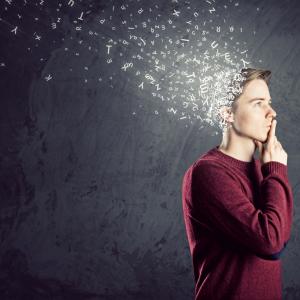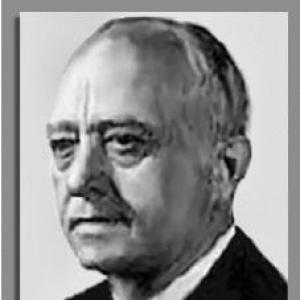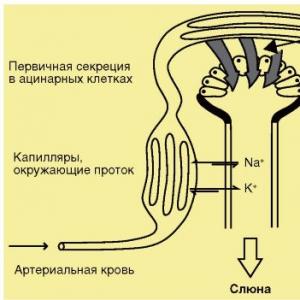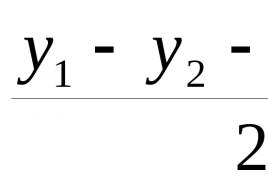Jurisprudence with advanced study of the Chinese language. Ministry of Education of the People's Republic of China and St. Petersburg State University agreed to expand cooperation
First, a few introductory letters: I studied at the law faculty in Moscow (Moscow State Law Academy), I realized that this was not mine, I wanted something as interesting as possible (the law faculty is still boring), unusual, but at the same time in demand at a prestigious university. I read a lot of positive reviews about the Federal Penitentiary Service of St. Petersburg State University, I re-enrolled in the 1st year, and now you have to read my rave reviews)))
I don't know who created this place, but it's insanely cool here! Honestly, without a grain of irony and lies, I constantly thank God for finding such a place and that I'm studying here because I like everything ...
To make it easier to read, I will write down everything point by point.
1. what kind of faculty it is, who they teach there: all students are very creative, critically thinking people, inquisitive activists. after the 4th semester, we are offered to realize ourselves in a specific direction, of which there are a lot (I just have a choice after this semester): history of art, history of civilizations, cinema and video, cognitive research (neurophysiology, cognitive psychology, etc.), computer science and artificial intelligence, literature (as an alternative to journalism), international relationships and political science, music, complex systems (neurocomputing, neuro-modeling, etc.), sociology and anthropology, philosophy, economics, history and culture of Islam, life sciences (bioinformatics).
Almost all profiles are focused on training specialists of the future. we study in English and Russian. I want to go to computer science and artificial intelligence, I think this will be in great demand in the near future and it will be very interesting to study. the education strategy is liberally oriented, atypical for Russia.
2. about training: the main thing for me is that it is very interesting for me here. It is difficult to imagine a student who would run to the university with a smile of 32 teeth, but know that there are such people, and this is at least me))) it is very fun to study. this is some kind of unreal environment of all sorts of interesting and useful things, there is no dry teaching and tedious lecturing, you are completely immersed in the learning process, explaining everything in a very accessible and easy way. half of the students leave for a semester to study abroad) is also a very attractive moment. The faculty cooperates with many foreign universities... it is still possible to create your own curriculum. By the way, regardless of your profile, you will receive two diplomas: St. Petersburg State University and Bard College. Almost all training is based on research work and critical dialogue, not dry teaching. there are a lot of disciplines from different areas: from economics to biology. Courses are taught in Russian and english language.
3. what is at the faculty: we have our own library, many laboratories, there are all sorts of additional. classes, for example, in video editing, electronic music, photography and others. there are still more than 300 different courses: abstract algebra, video art, Hollywood and a lot of interesting things, there are courses in various fields (there are also language courses). They kind of make up your curriculum, all this is chosen by the student himself and you yourself completely choose what you will study. Moreover, you must take courses from different directions: philological, economic, natural scientific, and others. There is a debate club in English and many language courses.
4. about the teachers: all are very strong, interesting, professional. I especially love Professor Chernigovskaya (biologist), she explains her subject in an incredibly interesting way. These are not the people who scolded everything that was written there from the synopsis and were getting ready to go home. These are the people who are constantly open to everything new, they really teach students, teach them how to think, do science, participate in various conferences, and publish in scientific journals. We have a system at the faculty that the more merit the teacher has, the higher his salary, so everyone is constantly improving))) By the way, the dean is Kudrin, the former minister of finance.
5.practice: in very different places, from the Hermitage to foreign research institutes... I know that many graduates have gone to work abroad, there is an acquaintance who works in London (in the world's largest American investment bank J.P. Morgan). They say that a diploma is appreciated and there are no problems with employment, but it seems to me that everything depends on the profile. By the way, the faculty assists the best students in finding employment.
6. extracurricular life: many classes (acting, for example, and others), a football club and much more (there are both at the faculty and spbgushnoe). well, they organize various conferences, competitions, debates.
7. Difficulty of training: depends on the courses chosen, the baggage of existing knowledge and teachers. not too difficult, but not easy either. in difficulty, somewhere in 7-8 out of 10. Maybe the huge complexity is not noticed, because all this arouses interest and a desire to learn it))) that is, not a burden, but a joy)
8. of the minuses: how would you be taught everything, you will be a fully developed personality, you will be well versed in everything in general, because here you will be taught politics, biology, physics, economics, and much more. But there is still no narrow specialization, despite the many profiles, so, for example, in economics, I would advise nevertheless to go to a specialized university or to an ekfak (despite the fact that we really have a very strong economic program), but for those who interesting is history, philology, art and everything that smells of novelty (neurolinguistics, artificial intelligence, etc.), the doors are open here and you will not regret it at all. Another minus is that there is no organization, everything is free to such an extent that you may not know your classmates at all if you have chosen different disciplines.
9. of the pluses: a huge impetus to development, the desire to learn everything around; two diplomas (USA and Russia); strong English, many native speakers; free curriculum, comprehensive training, hundreds of courses to choose from; famous teachers; prestigious university; liberal education; interesting learning process; the opportunity to study different foreign languages; a semester abroad or three weeks of English training in New York; small groups; employment for best students in Russian and foreign organizations; has its own electronic system, where there are all courses in electronic form, where it is possible to communicate with other students and teachers, to discuss something and receive additional material; very developed scientific activity; close cooperation with EUSP, Bard College and NRU HSE St. Petersburg; not a typical Russian, but a very European education (for SPbGU as a whole, this is not typical, except for the GSOM and us, very few people are oriented towards Europe); make you not cram for the sake of assessment, but think and analyze; it is not just an education, but a family - a way of life and thoughts; training in historic center cities; teach independence and critical thinking.
10.my verdict: those who want to get a high-quality, comprehensive, modern education are definitely worth it - you will not be disappointed for sure, all students really like this cool place)
|
|
The benefits of education
- The goal of the program is to train professional lawyers - specialists not only in the field of domestic, Russian law, but also those who know and are able to apply the law of the People's Republic of China
- The intensive development of Russian-Chinese cooperation in all areas requires increased attention to the staffing of such cooperation, including in the legal sphere
- The first and only major educational program of its kind higher education how in Russian Federationand in the People's Republic of China
- Familiarity with foreign policy China, as well as the study of Russian-Chinese relations in order to form an understanding and respect for the culture and traditions of the People's Republic of China
- The projected demand for the program graduates due to the existing interest of representatives of the Russian and Chinese legal communities in a specialist who combines the competencies of a lawyer and a translator
- Opportunity to receive a classical legal education at the oldest prestigious university in Russia with the simultaneous acquisition of broad knowledge in the field of Sinology
Famous teachers
- E.V. Sychenko - scientific supervisor of the program, associate professor of St. Petersburg State University, Ph. D.
- V. Yu. Bystrov - Doctor of Philosophy, Professor, Head of the Department of Philosophical Anthropology, St. Petersburg State University
- I. Yu. Kozlikhin - Doctor of Law, Professor, Honorary Worker of the Higher vocational education, awarded the Anatoly Koni Medal, University Prize Laureate for pedagogical skills, Honored Scientist of the Russian Federation
- A. D. Rudokvas - Doctor of Law, Professor of St. Petersburg State University, awarded with the jubilee medal "20 years of the CIS Interparliamentary Assembly"
- N. G. Stoyko - Doctor of Law, Professor of St. Petersburg State University, Editor-in-Chief of the journal "Bulletin of St. Petersburg State University", series "Law"
- Yu. V. Thoth - doctor historical sciences, Professor, Head of the Department of History for Teaching at Natural and Humanitarian Faculties of St. Petersburg State University, Laureate of the St. Petersburg State University Prize "For Pedagogical Excellence"
- D.O. Tuzov - Doctor of Law, Professor of St. Petersburg State University, member of the Italian Association for Comparative Law
- D.I. Lukovskaya - Professor, Doctor of Law, Honorary Professor of St. Petersburg State University, Honored Scientist of the Russian Federation
- V.F.Popondopulo - Professor, Doctor of Law, wears honorary title "Honored Scientist of the Russian Federation", badge "Honorary Worker of Higher Professional Education of the Russian Federation", is a member of the Scientific Advisory Council of the Arbitration Court of the North-Western District, a member of the Scientific Advisory Board of the Federal Chamber of Lawyers of Russia. Repeatedly acted as a representative and expert in the Constitutional Court of the Russian Federation, courts of general jurisdiction, arbitration courts and a number of foreign courts
- E. B. Khokhlov - Professor, Doctor of Law, Scientific Secretary of the Academic Council of the Faculty of Law of St. Petersburg State University, Honored Scientist of the Russian Federation, Honorary Worker of Higher Professional Education of the Russian Federation, awarded the Anatoly Koni Medal
International connections
In the process of implementation curriculum cooperation with partners from the People's Republic of China is envisaged, including:
- People's University of China (China)
- Shanghai University of Political Science and Law (China)
- Harbin Polytechnic University (China)
- Jilin University (China)
- Peking University (China)
Practice and future career
It provides for internship in organizations directly involved in the sphere of Russian-Chinese cooperation, and sending the most prepared students for internships in China.
Specificity professional activity graduates, is determined by their readiness to work both in the field of business and business contacts and in other areas, as well as the necessary knowledge and understanding of both the foundations of the Chinese legal system as a whole, and individual branches of law directly related to the regulation of relevant relations.
St. Petersburg state University was visited by a delegation of the Ministry of Education of the People's Republic of China led by Minister Chen Baosheng. During the meeting, the parties discussed the most topical aspects of cooperation in the fields of education and science. During his official visit, the minister also met with students from St. Petersburg State University who demonstrated excellent knowledge of the Chinese language.
The meeting began with a tour of the University, which was led by the rector of St. Petersburg State University Nikolai Kropachev for the representatives of the Chinese delegation. He paid particular attention to the achievements of law graduates.
“It is a great honor for me to be within the walls of St. Petersburg University,” said Minister Chen Baosheng. - Outstanding personalities studied and worked here, who made a significant contribution to the development of Russian justice. In my opinion, today the University can rightfully be called a monopolist in training the best personnel in the field of jurisprudence. "
During the official meeting, the parties discussed the results of the implementation of the agreement between the Ministry of Education of the PRC and St. Petersburg State University (this is a unique example for Russia of a direct agreement with a university), touched upon the issues of student and academic exchanges between St. Petersburg State University and Chinese universities, holding joint cultural events, and also discussed various aspects of educational cooperation. Thus, the minister supported Nikolai Kropachev's proposal to allow more students to participate in exchange programs between SPbU and Chinese universities, significantly increasing the quota in the agreement. In addition, with the support of the Ministry of Education of the People's Republic of China, it is planned to open a representative office of St. Petersburg State University at the Harbin Polytechnic University (KhPU), create a joint university of St. The parties agree on the joint preparation of scientific articles and comparative comments on educational systems two countries and an increase in the number of educational programs on the model of a double degree.
Nikolai Kropachev emphasized that the agreement signed between St. Petersburg State University and the Ministry of Education of the PRC in 2015 played a special role in strengthening partnerships. It was the support of the ministry that allowed the University to most effectively build relationships with educational institutions China and to double the number of educational programs with a Chinese component, the rector said.
As part of his visit to St. Petersburg State University, the minister also met with students - Sinologists, managers and lawyers studying Chinese language and law. The guys told why they chose these areas of training, and showed the guests creative performances in Chinese. Chen Baosheng highly appreciated the level of language proficiency among students of St Petersburg University and urged them to support the friendship that has developed between the two powers.
For information
St. Petersburg State University has long-term partnerships with universities in the PRC. For over 150 years, the University has been teaching chinese... Since 2005, the Confucius Institute has been operating at SPbU, the creation partner of which was the Metropolitan Pedagogical University in Beijing. In 2015, a direct agreement on cooperation in educational, scientific and cultural spheres was signed between SPbU and the Ministry of Education of the PRC. The university became the only Russian university to sign such an agreement.
Every year the number of educational programs with a Chinese component at St. Petersburg University is increasing. Today there are more than 30 of them at the university. Among the new programs are "Modern China: Economics, Politics, Society", "Jurisprudence (with in-depth study of the Chinese language)", "Organization of tourism activities (with in-depth study of the Chinese language)", "Economics (with in-depth study of the economy of China and the Chinese language) "," Professional speech activity in the media "and others.
« » (Scientific advisor The GSP until 2018 was Veniamin Fyodorovich Yakovlev - Soviet and Russian lawyer, statesman. Advisor to the President of the Russian Federation, Doctor of Law, Professor, Corresponding Member of the Russian Academy of Sciences, Honored Lawyer of the RSFSR. Full cavalier Order "For Merit to the Fatherland") in cooperation with Faculty of Law and Political Science, University of Nice-Sophia Antipolis (UNS) offer applicants a new undergraduate program “Jurisprudence. International legal profile (with in-depth study foreign language and the rights of European organizations) ”.
To implement this particular program, a Directorate was created at the Academy, headed by the head of the Higher School of Law, Ph.D. Oleg Zaitsev.
Reception is carried out on the basis of secondary general education based on 100-point scale uSE results (social studies, Russian, foreign language), and (or) according to the results entrance examinationsconducted by the Academy independently. On the basis of secondary vocational or higher education - according to the results of entrance examinations. Foreign citizens take entrance exams.
Implemented on french when studying at a partner university.
If, with overall successful academic performance:
- it was not possible to master French;
- studying and living for a year in France has become financially unaffordable;
- other obstacles arose that exclude the continuation of studies in France.
In such cases, the student has the right to:
- continue training with students of IGSU, IPNB and VAVT under the program "Jurisprudence" and receive a diploma from the RANEPA under the President of the Russian Federation or VAVT;
- switch to one of the other programs implemented by the Institute of Public Administration and Administration of the RANEPA and our partners.
Competencies and benefits
upon completion of training, the following are issued:
- bachelor's degree diploma of the state standard of the Russian Federation in the direction of "Jurisprudence";
- diploma of the French Republic in the direction of "Jurisprudence".
The advantages of this program are not only and not so much in its international status, but also in:
- destination - to train lawyers capable of professionally defending the interests of Russia and its citizens in European and international organizations;
- curriculum , involving an in-depth study of international and Russian law, the practices of European international organizations, foreign languages;
- composition of professors and teachers , which included the best specialists in the field of jurisprudence, public administration, teachers of foreign languages.







